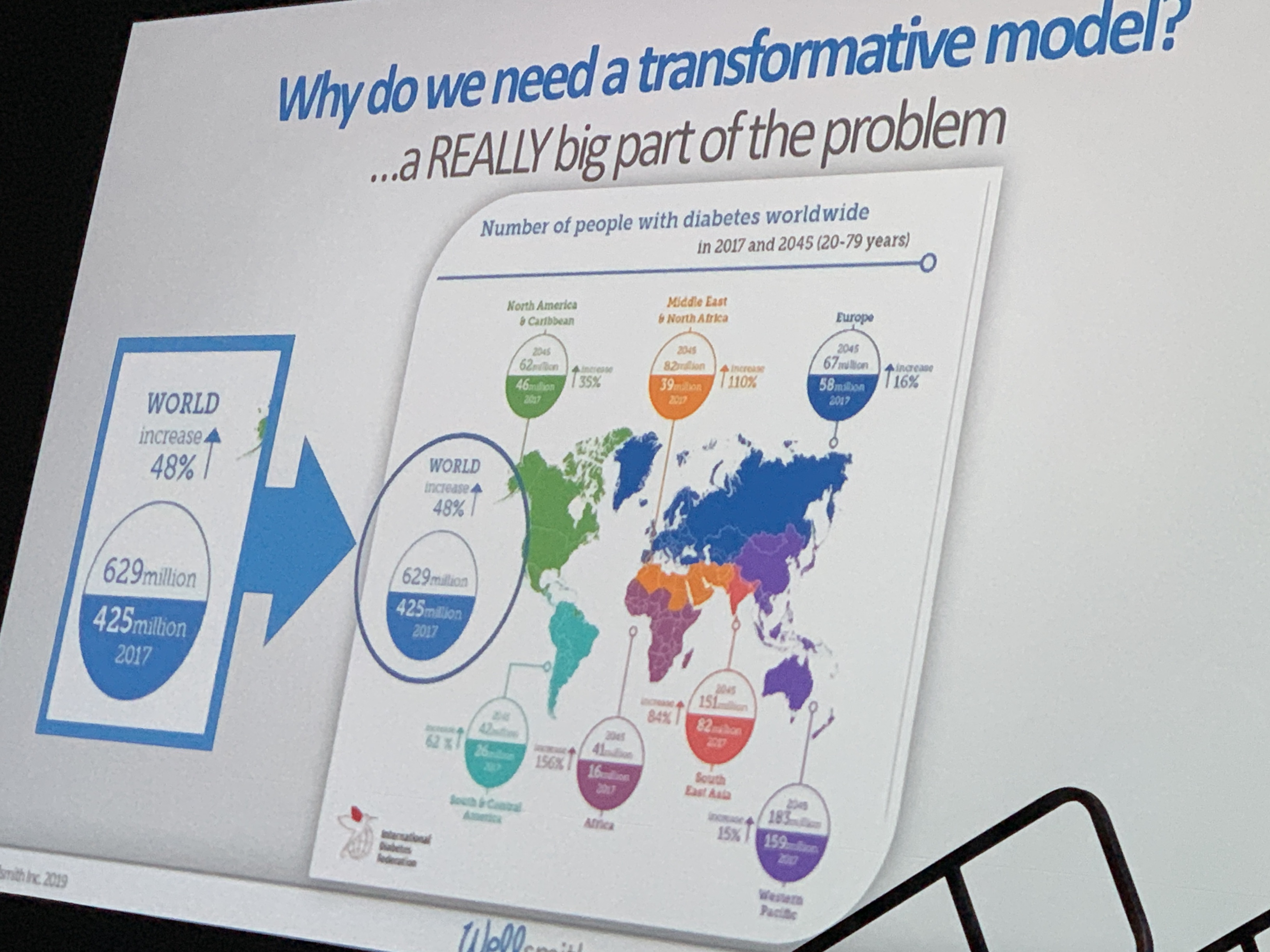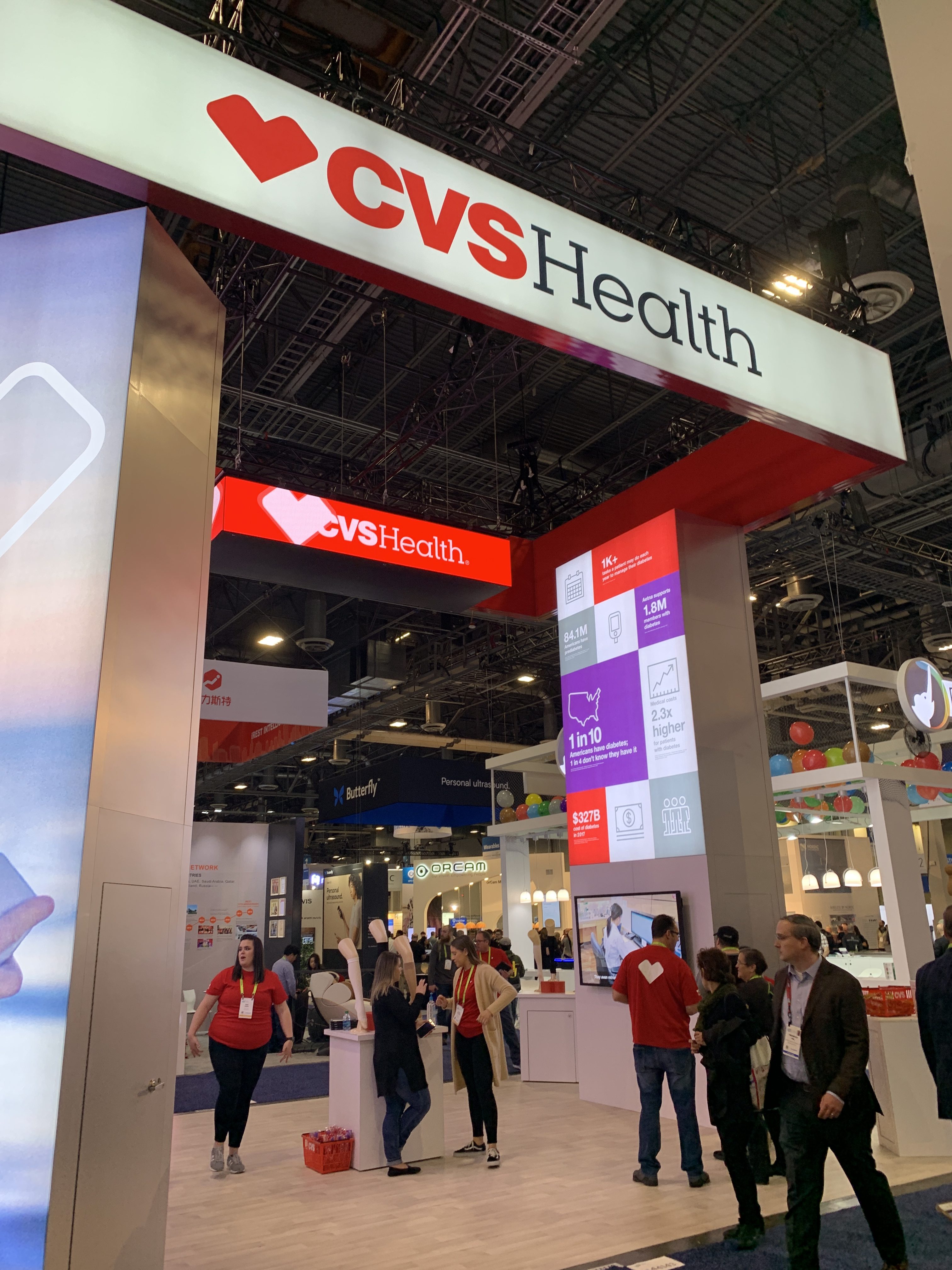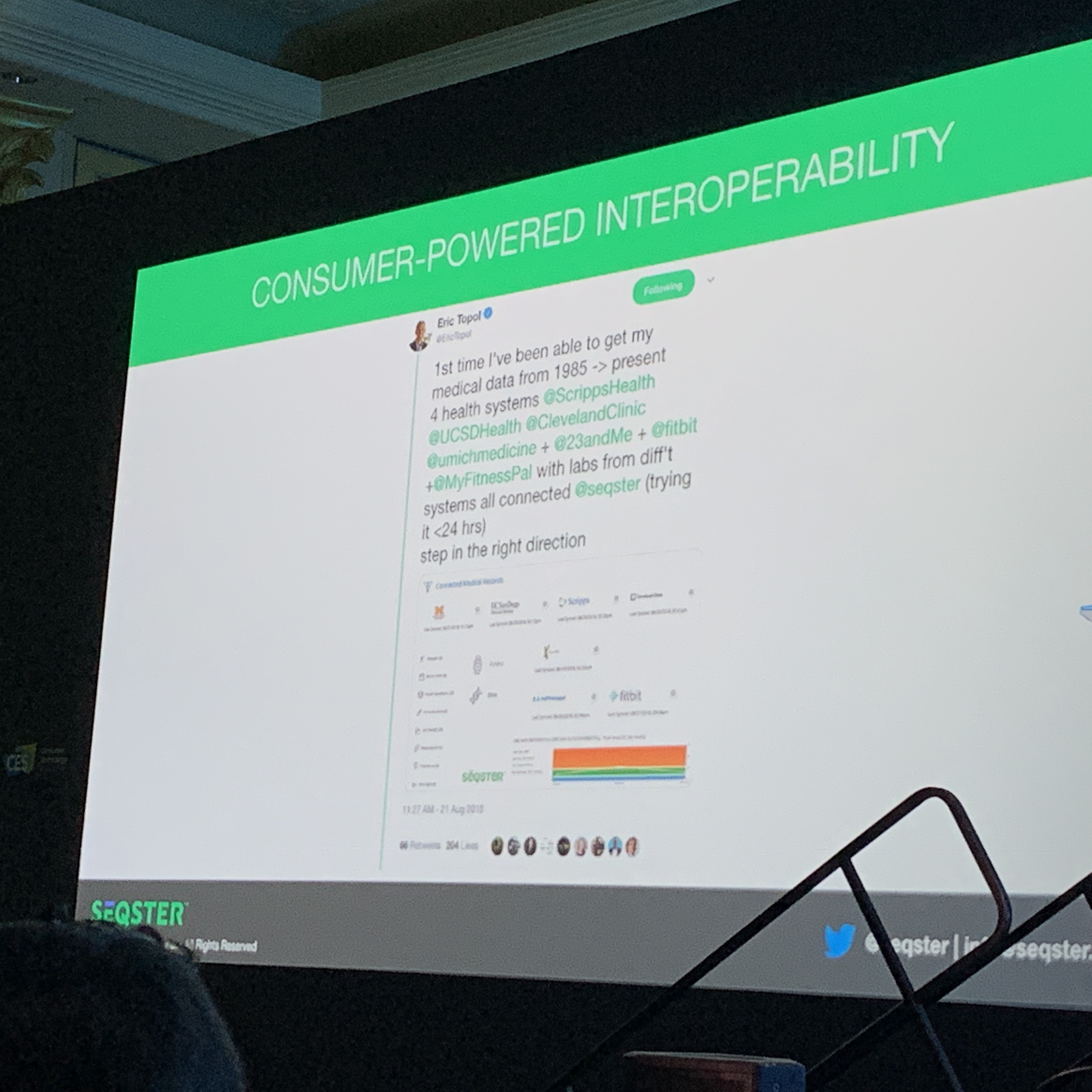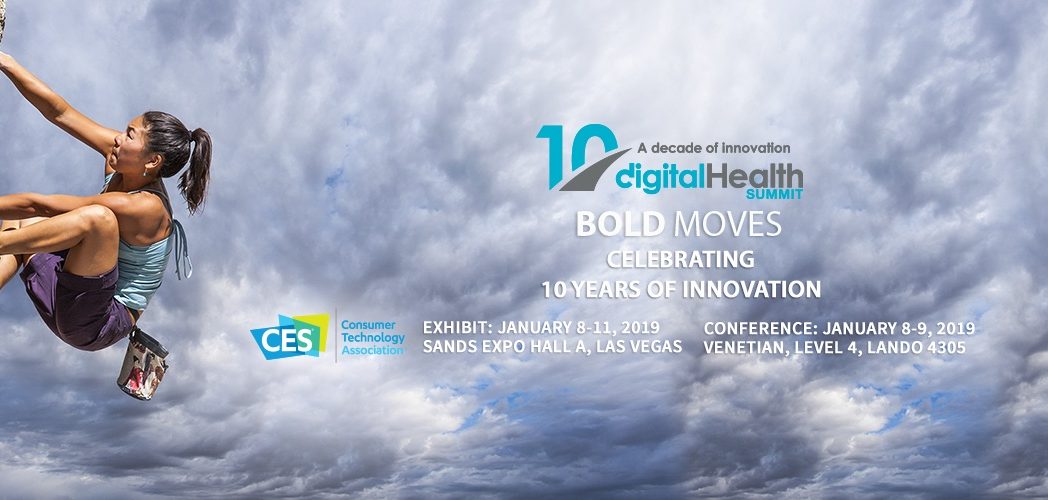It’s four years since I last attended the Digital Health Summit at CES, and I was excited to get an update on what the promising digital solutions I keep reading about had actually delivered.
That bubble burst pretty quickly, when the first session on tech’s ability to transform the healthcare delivery model confirmed that while the technology to do so definitely existed, and that studies had shown many conditions where patients recovered better at home than in hospital, the reality was that this was still a long way from being implemented at any kind of scale. As one of the speakers stated, when a model of care has better outcomes and is less expensive to deliver, it just shouldn’t be this hard to make it happen.
Over the course of the next couple of days a few things became clear.
The companies progressing fastest in the space are often not healthcare companies, they are companies that understand consumer needs and behaviours.
Fitbit is a good illustration of this. They now have so much data not only on both working out and sleep, but also on what social determinants best influence behavioural change that they can now design health programs that combine digital intervention with human coaches.

Best Buy is another company who knows their customers well, and recognised the huge market opportunity that exists through better supporting seniors health needs at home. They knew their existing infrastructure, including their ‘Geek Squad’ , would allow them to support service delivery, but they needed health expertise so bought connected health provider GreatCall.
With the ‘Amazon-priming’ of the US consumer continuing to build at pace – I want it in a price transparent manner, I want it peer-reviewed, and I want it now’ I think we can expect to see skilled retailers deliver on this promise in a faster manner than traditional healthcare companies can adapt to.
Everyone has their eyes on the diabetes prize
There were sooooo many diabetes focused products. From apps, to devices, to coaching tools, the amount of diabetes tech on display was phenomenal but not surprising with the alarming projections around the growing incidence of diabetes globally.

One thing that I found particularly interesting was that despite the imposing size of the CVS display on the showfloor, it had one focus – diabetes monitoring and management – flagging a clear intention to position itself in a different manner going forward to the supply focus that has historically dominated the large US pharmacy chains.

5G is going to further increase the tsunami of health data swamping us
As 5G networks roll out, the increased speeds will result in the collection of even more personnel health data, but without the development of AI and machine learning tools which make sense of it, the potential insights it can deliver will go undetermined.
Software is becoming medicine
There are already a number of examples globally of apps being prescribed alongside of or instead of medicines (the NHS in the UK has a number of projects underway in this space), but products like Akili Interactive’s video game treatment for ADHD which is currently awaiting FDA approval, illustrate the role that therapeutic software is going to play in healthcare.

As a pharmacist I’m acutely interested in this emerging trend, and thinking hard about the role pharmacists can play in both the ‘dispensing’ and monitoring and management of these new era prescriptions.
The silo-ing of health data is still a big issue
The US is streets ahead of Australia in terms of electronic health record system implementation, but despite the prevalence of EMR systems the data contained within them is heavily siloed, significantly restricting the ability for functional care delivery across providers, never mind the oppotunity to deliver significant insights.
The average American has electronic health records in four separate systems by the age of 25, not to mention their fitness and personally generated health data, plus the genomic/genetic data that has exploded courtesy of companies like 23andMe, Ancestry DNA etc etc.
The real power of this data can only be delivered when these multiple data sets are combined, and it was exciting to see a company called Seqster who have done just that. I particularly liked their ‘Health Trust’ product, which allows family members to give permission for their records to be shared with other family members not only while they are alive but in perpetuity, allowing the potential of multi-generational data to be unlocked.

I wasn’t surprised, but I was disappointed about the relative lack of progress that had been made in reaching the potential that had been spoken about at the same event in such hopeful terms four years ago.
Will the frequently used quote by Bill Gates of ‘most people overestimate what can be achieved in one year, but underestimate what can be achieved in ten years’ apply to the tech-led transformation of healthcare delivery? If so then the next few years are going to be incredibly exciting to be part of.
Unfortunately I feel the better fit may be another frequently used (and most recently attributed to Pantene hair care) quote – ‘it won’t happen overnight but it will happen’.
There’s no question that the tech exists to deliver the transformation, the rate limiter here is the appetite and capacity for change of the healthcare industry.

Wow! Really interesting to see that products like the Akili Interactive video game could be used as a treatment for ADHD, certainly highlighting an increased role for therapeutic software. Perhaps we will see some areas of healthcare progress faster than others, e.g., neurodiversity and mental health.